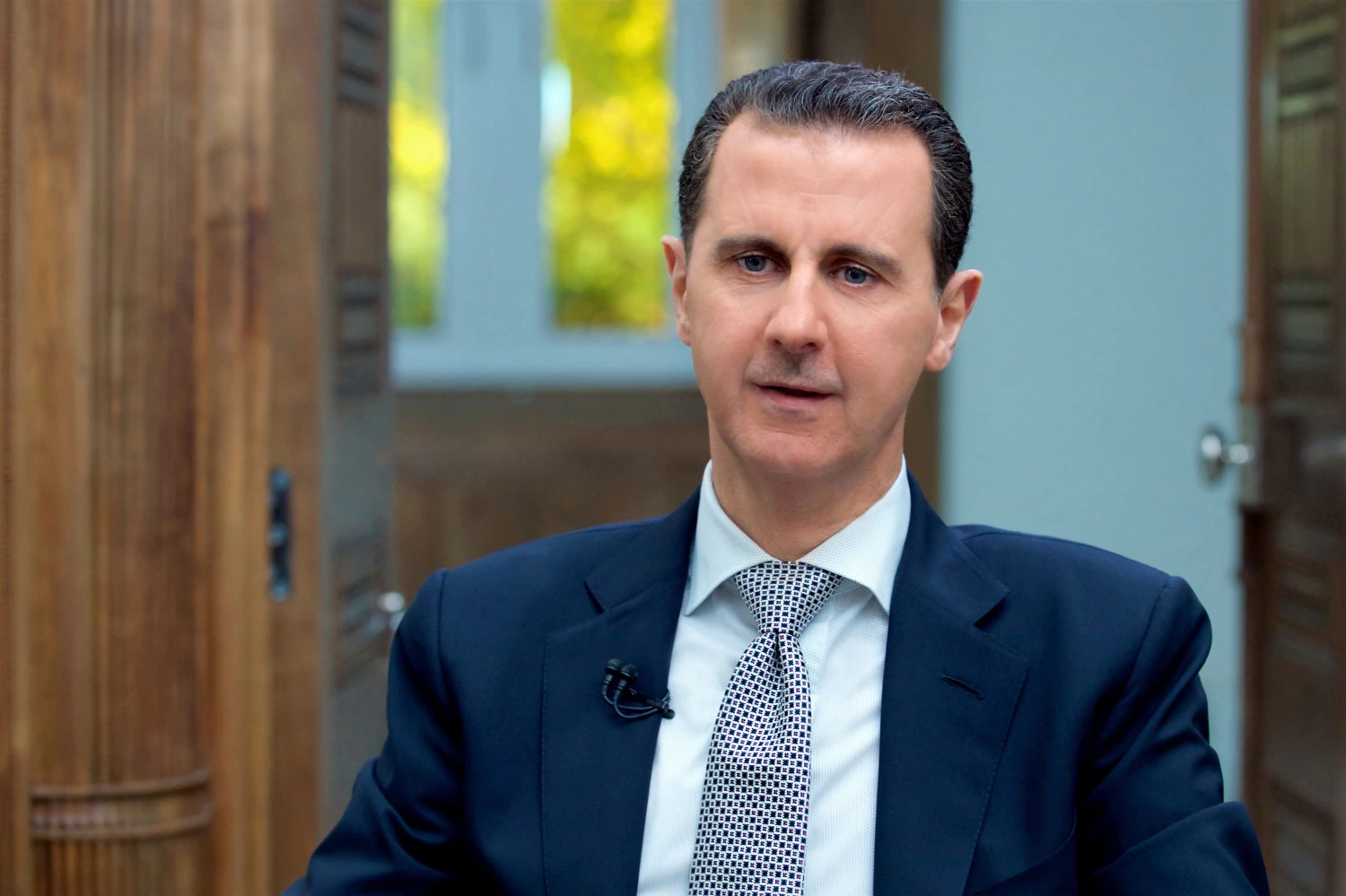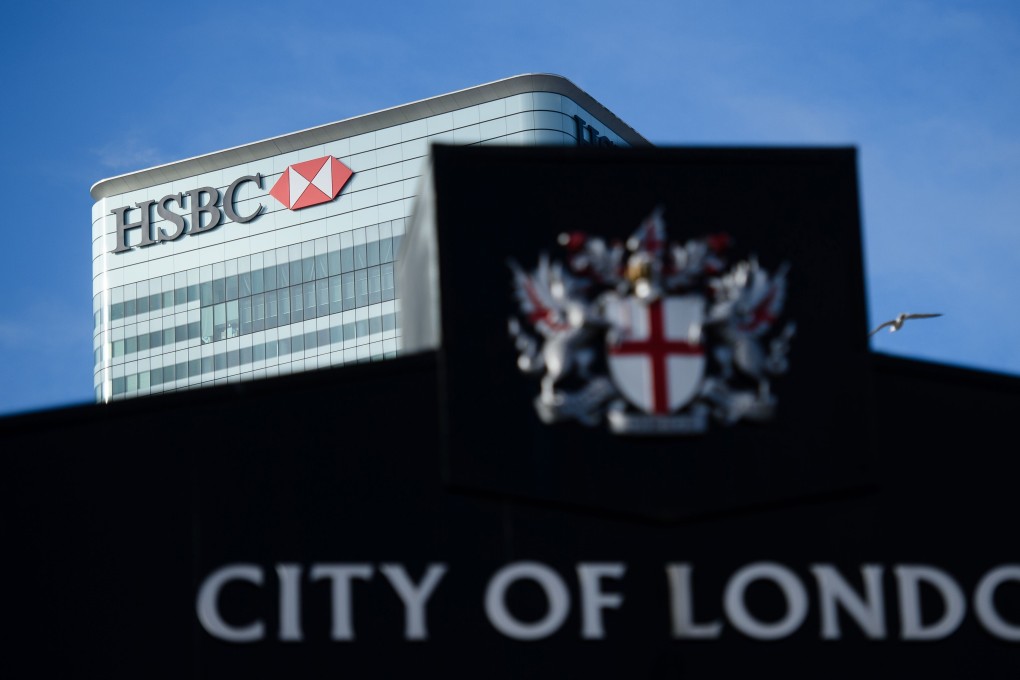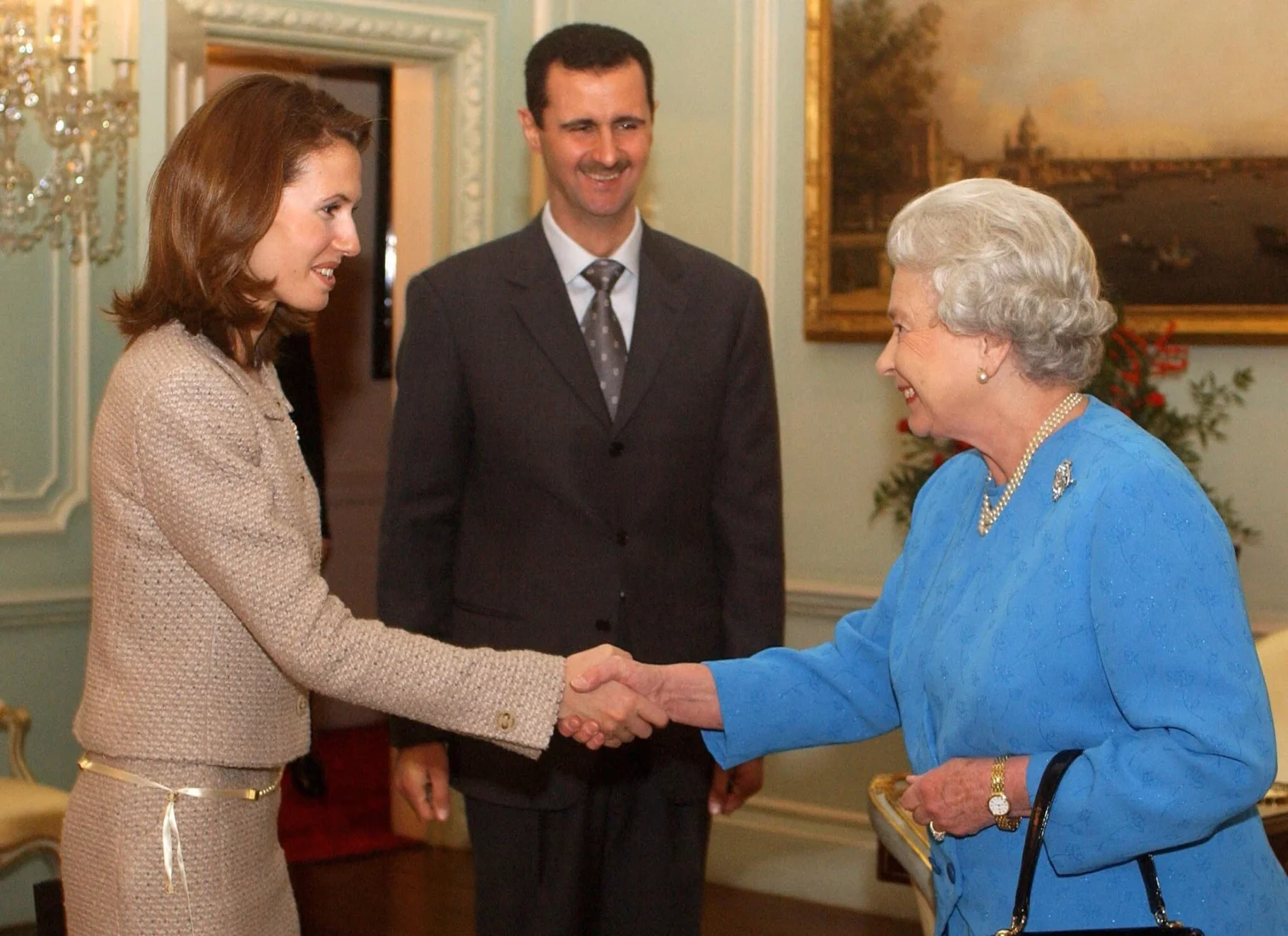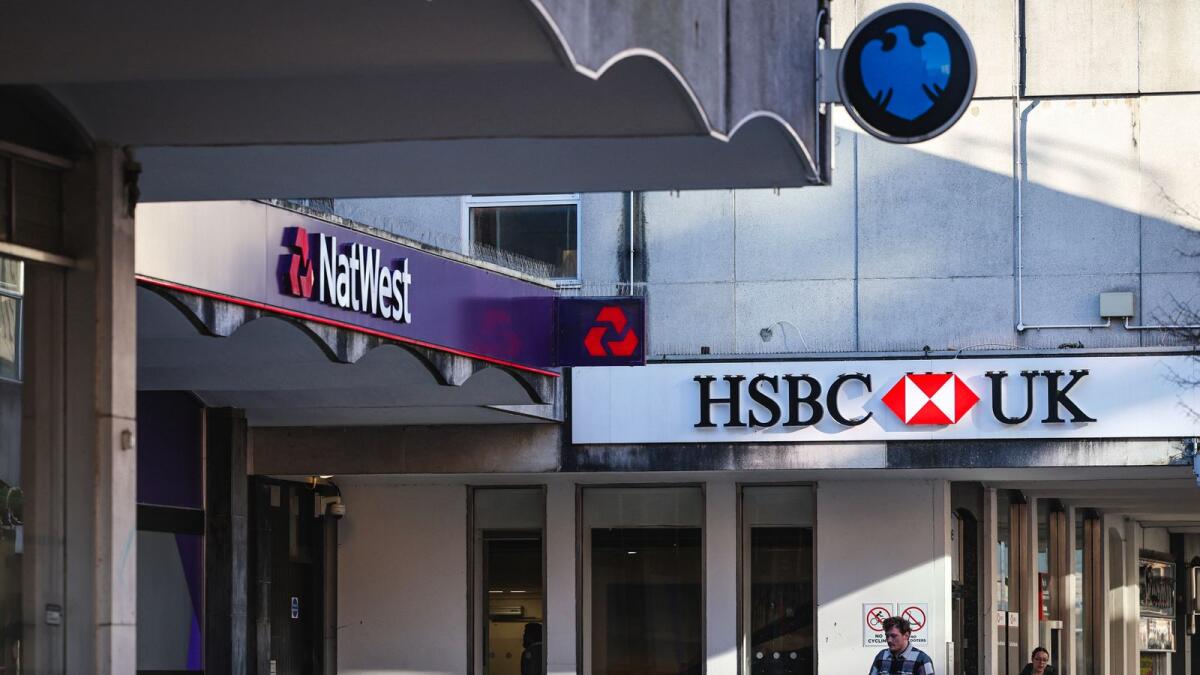Assad holds nearly $70M in London HSBC account, prompting calls for asset seizure
Assad holds nearly $70M in London HSBC account, prompting calls for asset seizure
December 14, 2024 11:05 AM GMT+03:00
Former Syrian regime ruler Bashar al-Assad has more than £55 million ($69.4 million) in a frozen HSBC bank account in London, part of £163 million linked to Assad, his family, and close allies, according to a report by The i Paper.
The funds have sparked demands from human rights organizations and political leaders for the U.K. government to seize the assets and use them to rebuild war-torn Syria.
Assad's assets in UK
Court documents from 2011 revealed that Assad held £40 million in an HSBC account, frozen under U.K. sanctions imposed after his regime's violent crackdown on anti-government protests. Despite being inaccessible to Assad, the funds have grown to £55 million due to accrued interest.
Key figures include:
- £163 million in U.K. accounts tied to Assad, his family, and associates.
- £26 million Mayfair townhouse owned by Assad's uncle, Rifaat al-Assad.
The London offices of HSBC in the Canary Wharf district of London. (AFP Photo)
Calls for government action
Political leaders and human rights advocates are urging the U.K. government to take decisive steps under the Proceeds of Crime Act 2002 to confiscate the funds.
- Iain Duncan Smith, former Conservative leader, said: "After more than a decade of conflict in Syria, it is high time the U.K. government takes decisive action to support victims of the Syrian conflict and the Assad regime."
- Priti Patel, shadow foreign secretary, emphasized: "The government must use the full range of powers available to review the assets held in the U.K. and repurpose them for the good of the Syrian people."
https://twitter.com/pritipatel/status/1867225897339662458
Priti Patel's statement regarding Syria on X
The funds, advocates argue, should eventually be returned to Syria once an internationally recognized government is established.
Queen Elizabeth II receives Asma al-Assad (L) and her husband, former regime ruler Bashar al-Assad, on their first visit to Britain, at Buckingham Palace, London, Dec. 17, 2002. (AFP Photo)
Humanitarian needs and justice
The devastation caused by Assad's regime has left millions in dire need.
- Over 500,000 people were killed during Syria's civil war.
- Millions were displaced, with limited resources for reconstruction and humanitarian aid.
Razan Rashidi, executive director of the Syria Campaign, stated: "These millions in U.K. banks belong to the Syrian people. The funds are urgently needed to meet the dire humanitarian needs in Syria and should be spent there."
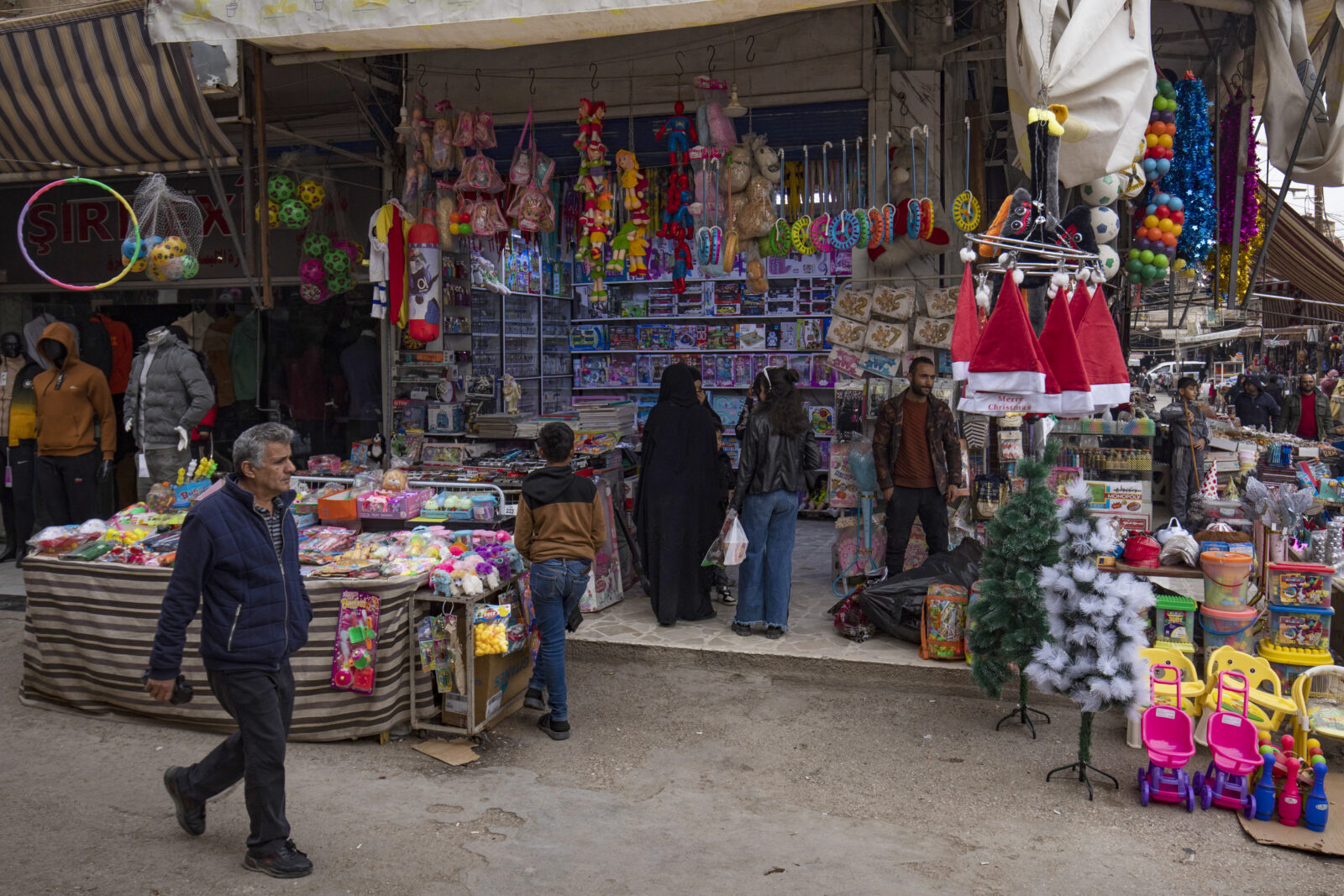
People shop on a market street in Qamishli in mainly-Kurdish northeastern Syria on December 11, 2024. - Islamist-led rebels took Damascus in a lightning offensive on December 8, ousting president Bashar al-Assad and ending five decades of Baath rule in Syria. (Photo by Delil souleiman / AFP)People shop on a market street in Qamishli in mainly-Kurdish northeastern Syria on December 11, 2024. - Islamist-led rebels took Damascus in a lightning offensive on December 8, ousting president Bashar al-Assad and ending five decades of Baath rule in Syria. (Photo by Delil souleiman / AFP)People shop on a market street in Qamishli in mainly-Kurdish northeastern Syria on December 11, 2024. - Islamist-led rebels took Damascus in a lightning offensive on December 8, ousting president Bashar al-Assad and ending five decades of Baath rule in Syria. (Photo by Delil souleiman / AFP)People shop on a market street in Qamishli in mainly-Kurdish northeastern Syria on December 11, 2024. - Islamist-led rebels took Damascus in a lightning offensive on December 8, ousting president Bashar al-Assad and ending five decades of Baath rule in Syria. (Photo by Delil souleiman / AFP)
Legal and administrative challenges
Under U.K. financial sanctions, frozen funds remain the property of the account holder, meaning they cannot be redirected without additional legal measures.
Chris Doyle, director of the Council for Arab-British Understanding, highlighted: "This money should be transferred, at the right time, to a new Syrian authority … transparent, credible, legitimate, and inclusive."
Despite growing pressure, there is no existing legal framework to repurpose frozen assets directly for humanitarian use.
People walk past a branch of HSBC, Natwest and Barclays banks on a pedestrianized shopping street in Bracknell town center. (AFP Photo)
HSBC and UK government response
HSBC declined to comment on specific client accounts, emphasizing its compliance with all sanctions regulations. The U.K. government has similarly refrained from commenting on individual cases.
December 14, 2024 11:05 AM GMT+03:00
